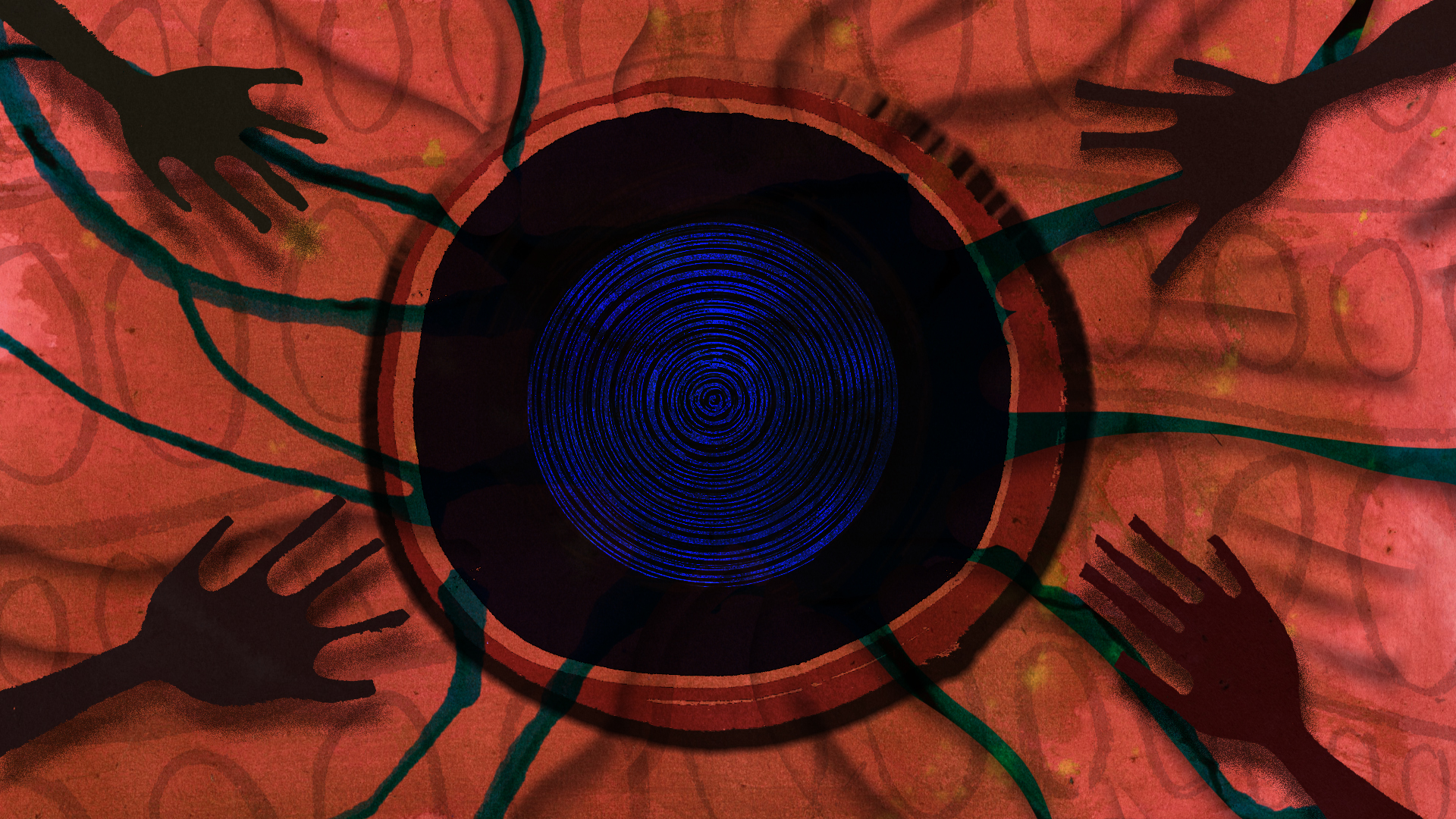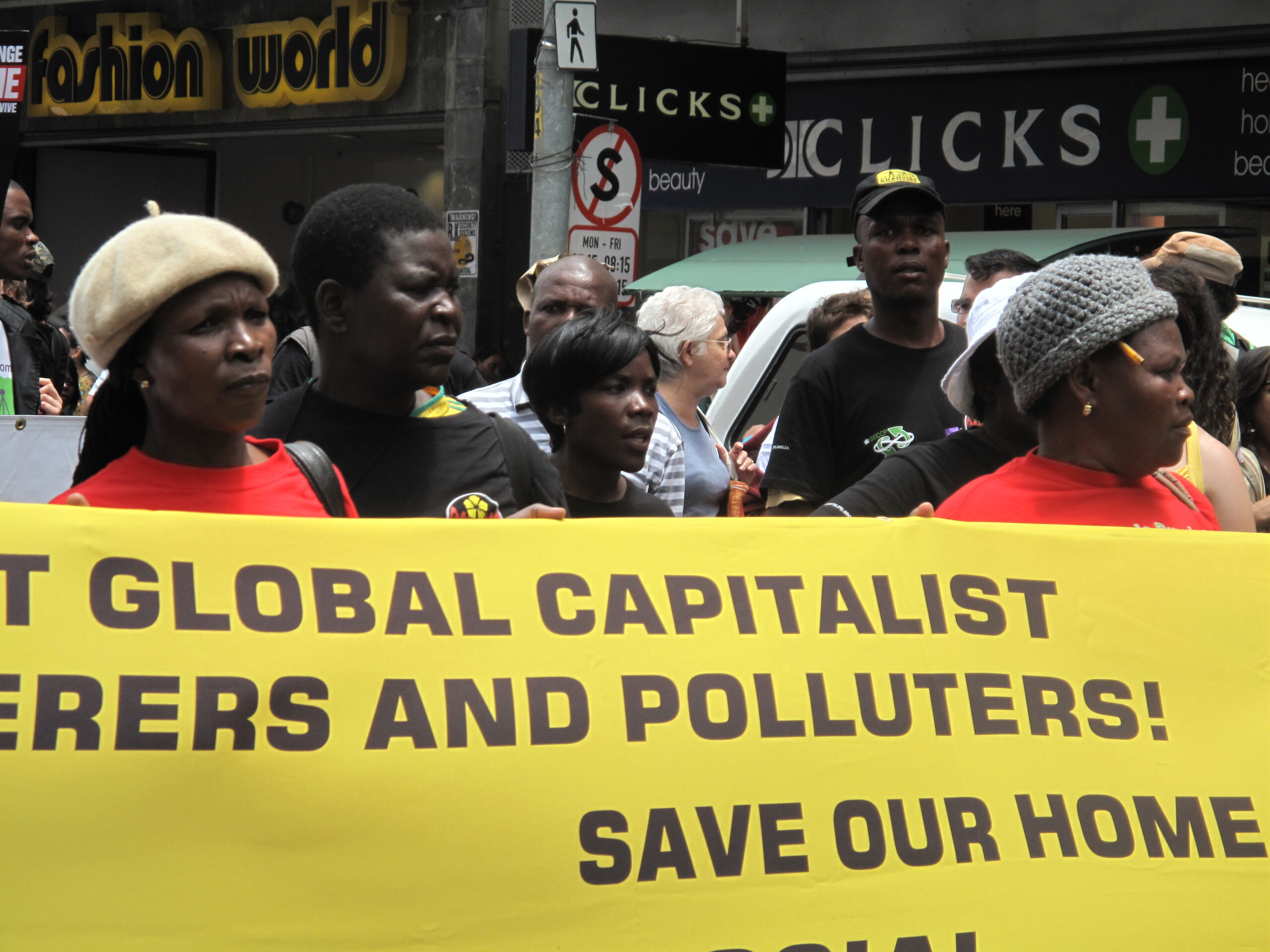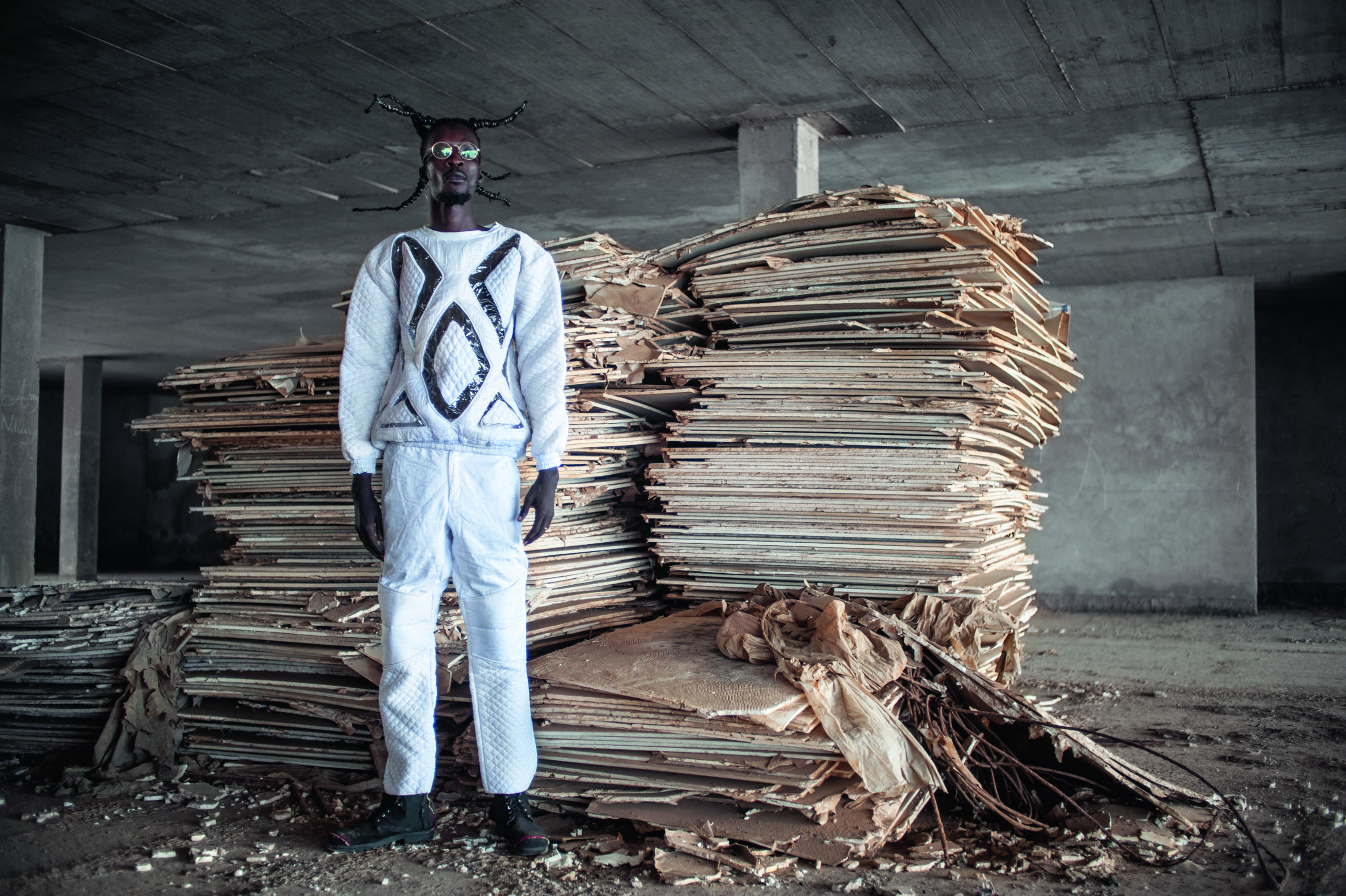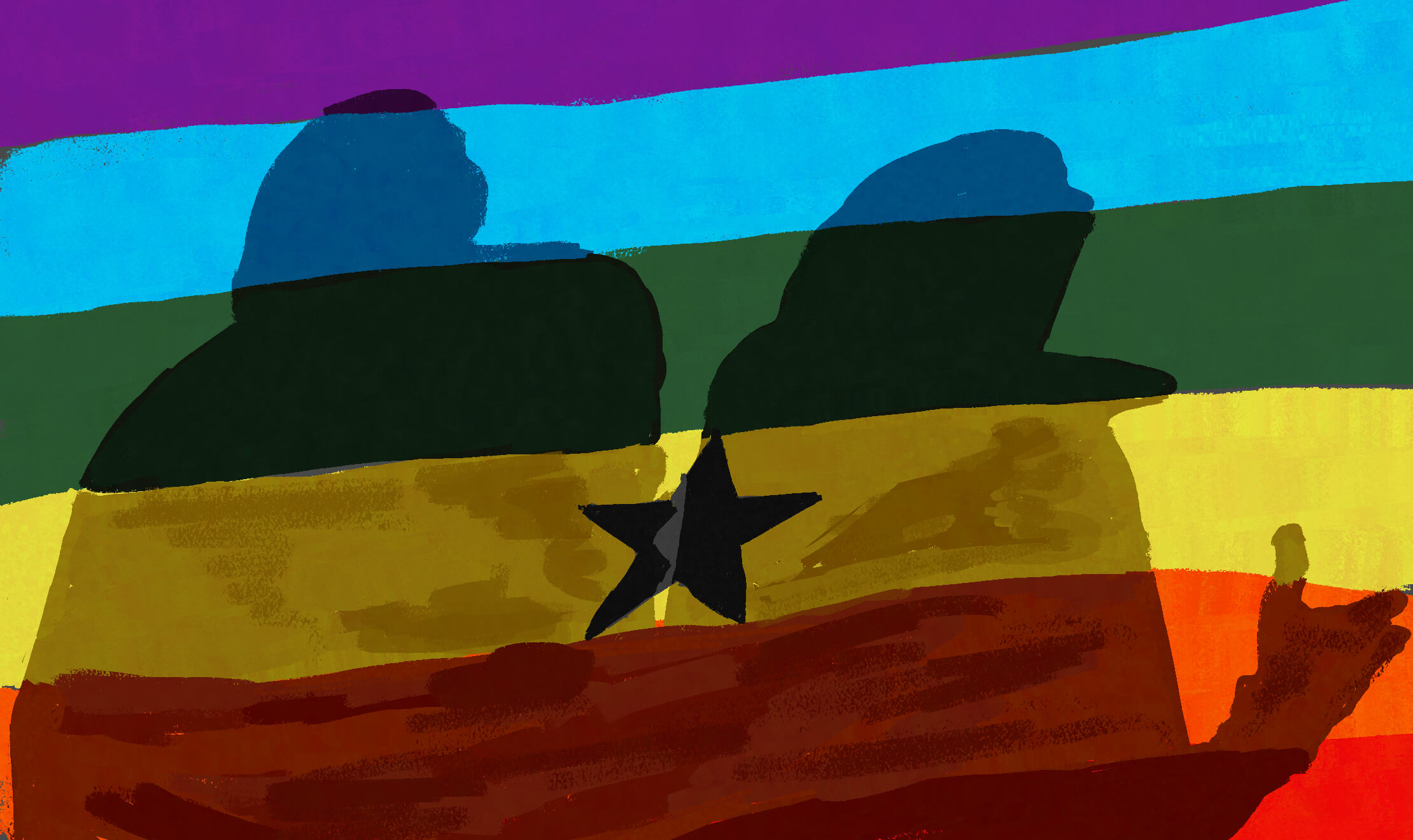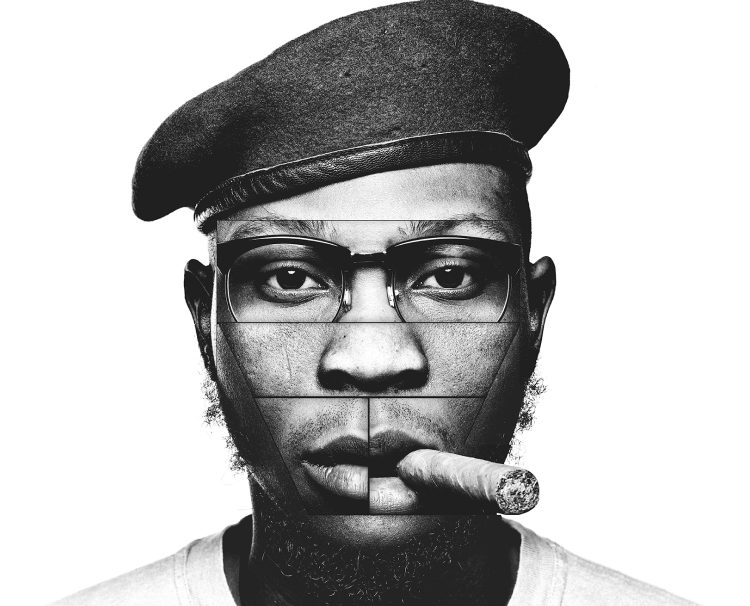
Seun Kuti is a man of exceptional musical talent. He’s a saxophone virtuoso and every composition with Egypt 80, the band he took over from his late father, is powered by vocals and lyrics that reflect his permanent state of activism. His dedication to that activism, whether through music or interview, can’t be overstated. With a new album, Black Times, set for release on 2nd March via Strut Records, the artist speaks with gal-dem about the new generation of afrobeat, colonial legacies that permeate the motherland and the fight we’re still losing.
gal-dem: You’ve been playing with Egypt 80 since you were a child. How has the music grown and changed? What have you learnt that you’ve put into this new album?
Seun Kuti: I don’t think the music has changed much but I think it has evolved a lot. Over time the more acts that have come into the genre that have brought their own personalities. The development has come through all the people of the world that are into afrobeat and have added their own cultures, and their own thoughts and ideas. Now, afrobeats is a big family and a big genre.
Your father, Fela, pioneered afrobeat music, a genre which is now very popular across the globe, especially in Europe where there are many budding bands composing and performing his type of afrobeat. Do you think new Afrobeat bands are coming up in Nigeria too just as it is happening in Europe? If not, what do you think is responsible for this? Do you think Nigerian bands are less supported?
The thing is an economic thing – it is more difficult for young people in Nigeria to start a big band compared to those in Europe or America to do the same. You know what I’m saying? A young boy in Africa that does not have the successful backing can never run a big band but in Europe or America, people can get social backing to develop your art. Despite this, there are young people who are coming out but they do not get the support that they deserve from the elite in the motherland.
“‘Black Times’ was something that I wrote during an emotional moment for me in my life”
The message in your music seems to be getting more political and more forceful, particularly ‘Black Times’ featuring Carlos Santana. Can you tell us about the message and inspiration for the song?
‘Black Times’ was something that I wrote during an emotional moment for me in my life – it was not a happy time for me. I wanted to say ‘black moment’, but that did not sound good, so I thought unhappy time, black time. It’s in that moment that you really understand what it is to be a motherland people living in the world today and understanding the system of global white domination. It was about understanding my story and my history from the right context. That was very powerful for me.
You touched on the role of Western influence. You were once quoted in a Guardian interview as saying, ‘Every African country is governed by a dictator mentality’. What do you make of the current situation in Nigeria at the moment? Do you think we have progressed since your Fela’s time or are we still stagnating?
Economically, we are moving back and politically, we are definitely stagnating. There is still no African government that is completely for motherland people. The people who love and respect the motherland were all betrayed and killed in the 60s and 70s and then replaced by the military – all these dictators. What people don’t understand is that all the military in these post-colonial years were trained by the colonial governments – by Europeans and they took over power. These people that gave us freedom and then betrayed the ideology. We could not really capitalise on gains of independence.
I may be opening up a door to a conversation that could go on forever. In terms of the recent situation in Zimbabwe, do you have any thoughts on that?
Zimbabwe is complicated as there is [Robert] Mugabe who has betrayed his own revolutionary ideology although, he is not as bad as they want us to think he is. Most of the atrocities that Mugabe committed were on behalf of these so-called liberators. These same veterans who want us to believe that they have removed him are the same people who were instigating most of these atrocities that were blamed on Mugabe. This is the problem with the military in Africa – they cannot stay out of politics. Look at how divided it is in America. Have you ever heard of the military coming to retain law and order? That can never happen. But these military men that were trained in Sandhurst and other European cities, that is what they learned and they continue to interfere in our politics. We must agree that this military intervention is wrong in any situation. Period. This is the only way we can cut the role of military government and keep Africans empowered. Mugabe has been allowed to walk off – he has not seen justice. Look at Rwanda: all these atrocities authorised by the French government and nobody seeks justice. There is no peace without justice. We must look for reforms that can allow justice to happen, not reforms that overlook justice.
When you referred to military policing, we have seen with Black Lives Matter that this is a growing trend globally not just in Africa –
Yes, but only to motherland people. Did you see any militarised police to stop them in Charlottesville? Come on.
“The larger struggle in the world still remains the class struggle. We have to understand that the elite of the world are still trying to dominate us.”
You once said, ‘The same oppression felt by workers in Flint, Michigan is felt by workers in Lagos and Johannesburg’. For a lot of activists, particularly black women, intersectionality has become a big word, in terms of addressing the different struggles we should be combating. Is this something that you’ve heard of and agree with?
I understand the struggle is broad, wide and multi-faceted. The only reason there is an independent black struggle is because the larger working class of the world have betrayed the working-class principle and aligned themselves with the oppressor when it comes to racism. With racism, the system of global white domination says, no matter how bad you are or no matter how worse off you are as a white person, at least you are not black. You understand? White people have accepted these values and these injustices. There is dehumanisation and an invasion of black and brown countries without any solidarity from their end. The outside world movement does not have any political backing in Europe or America so we have to have a black struggle and fight for ourselves. The larger struggle in the world still remains the class struggle. We have to understand that the elite of the world are still trying to dominate us. This is what we as a people need to stand up against and try to rectify. When my friend in American tells me, ‘I can’t get a loan – it is because I am black’, I say in Nigeria all the banks are black-owned and you still don’t get loans too [laughs]. So how do you explain that?
I agree that you have to figure out where all these issues align. Often it is under a white capitalist, supremacy. You have to look at the head of the beast. ‘African Dreams’ is another favourite of mine. ‘Too many want to be the bigger and man, buy buy buy for European things. Walk, walk, walking and sweating for some America things’. The message seems directed at young Africans. Tell me more about your message to young Africans about their future?
Not necessarily young but working-class people. The value system that we have as motherland people all over the world is wrong. We have bought into these narratives that are promoted on TV and Radio that the more European, American and Asian things that you can own, then the more you are successful. If you cannot acquire these things then you are not successful. The pressure that is being put on the minds of many young black people and they are being told that the real issues that face us are not important. This is why ‘African Dreams’ is important. It is our duty to release our society from this backwardness and the situation that we are under. The only way to do this for the majority of us is to make the motherland Africa our priority. Without people like Nkrumah, Lumumba and Martin Luther King, Malcolm X and Che Guevara, countless people that gave their lives and sweat, we would not even be here to talk like two black people on the phone. People are betraying those sacrifices by claiming to be self-made – not acknowledging that they are a product of that struggle and engaging. The struggle was engaged before we were here, to open doors and to allow more of us to engage ourselves, not just for some us while the rest of us fall into poverty.
I think what has happened too much is that people want to be at the table and no longer create their own table.
That is what I am saying. The value system is all wrong. Everyone wants to consume European things and all this integration.
I know Fela recorded lots of other tracks that have not been released. Are going to be released at any point?
Yes, they are in the works and talk has started to release them. It is in the very early stages as it is difficult.
Hopefully, see you at your Brixton Electric gig.
Ah yes, we can catch up backstage and maybe I can give you a free beer [laughs].
This interview has been edited for clarity and length.
Black Times by Seun Kuti & Egypt 80 will be released on 2nd March Via Strut Records. See them on tour:
02 March / London Electric Brixton
01 May / Manchester Gorillaz

